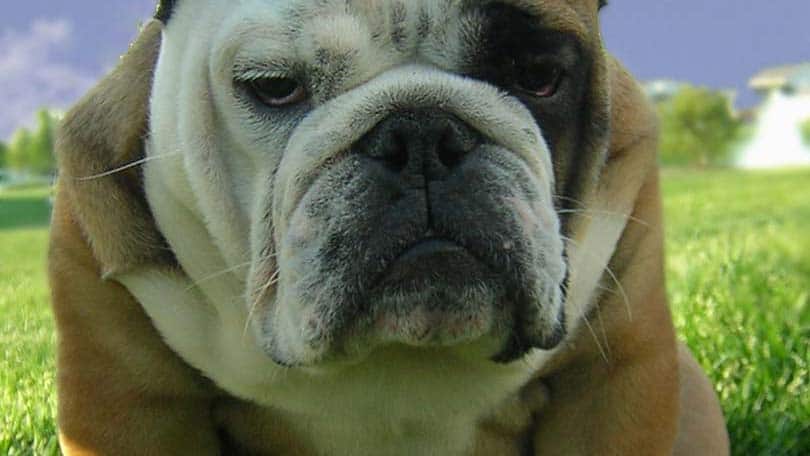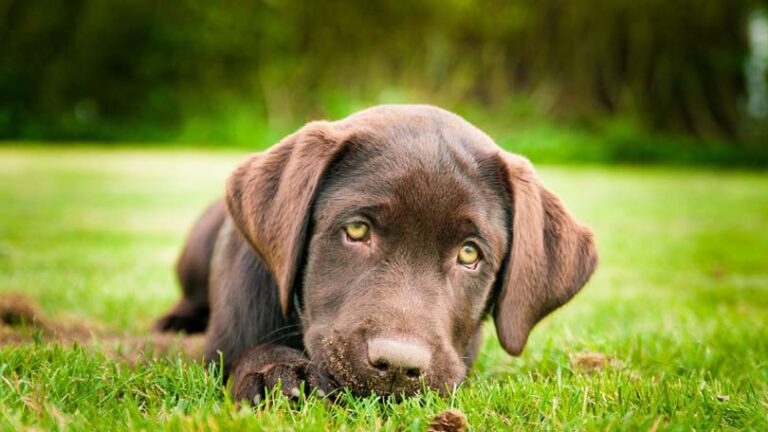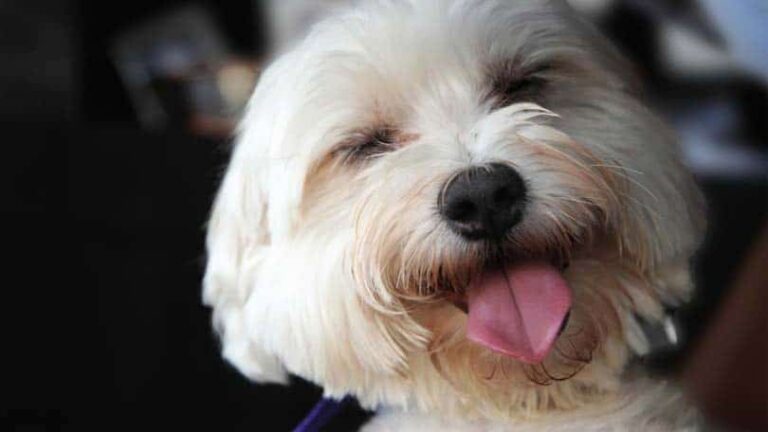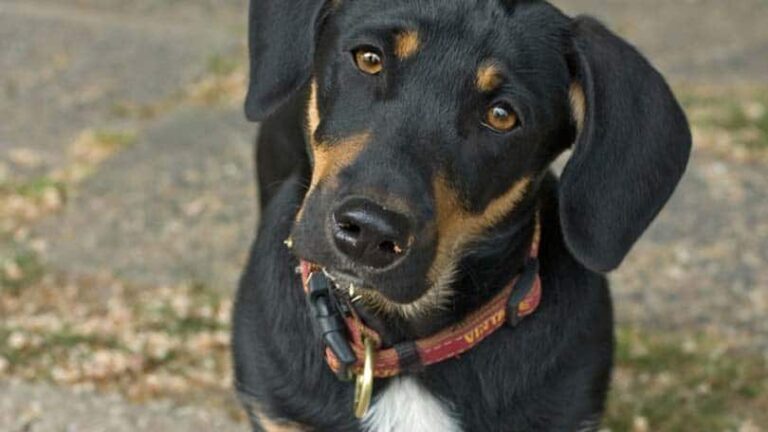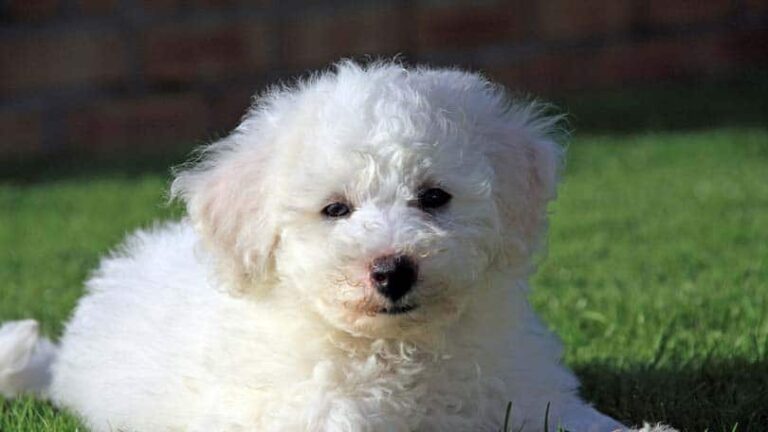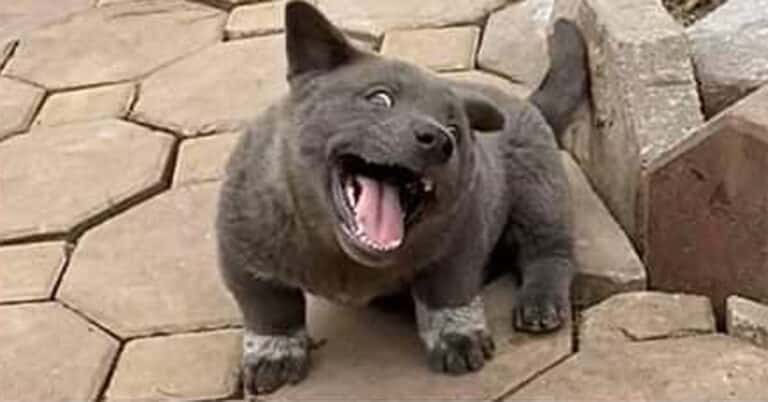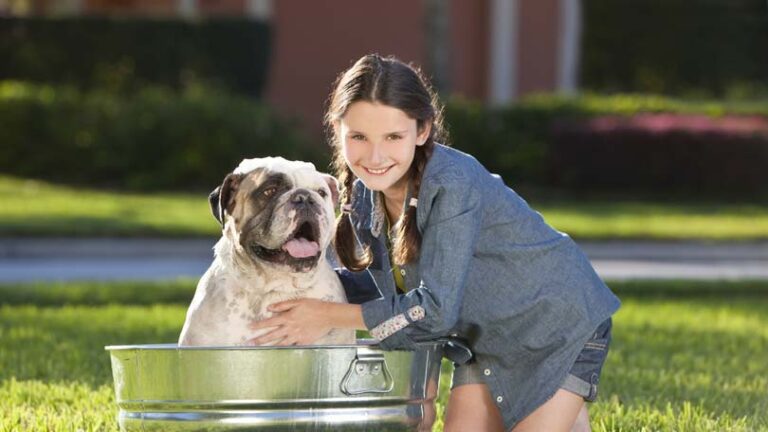How Can I Stop My Dog From Snoring?
If you have a dog who makes the room rattle when he snoozes, you’re not alone. Snoring is a common condition in dogs, just as it is in humans. Brachycephalic breeds (short-nosed) such as Pugs, Bulldogs, and Boxers, frequently snore because of the shape of their muzzles and air passages. But dogs can also snore for other reasons. Fortunately, there are some good ways to help stop your dog from snoring.
Why do dogs snore?
As mentioned, brachycephalic breeds often have this condition because they have a pushed-in face and shorter noses. As a result, the tissue of their soft palate doesn’t fit very tightly in their mouth and throat. The tissue can flap when they are breathing during sleep. These breeds also tend to have flattened windpipes which can make breathing more difficult and noisier.
If you don’t have a short-nosed breed, he could snore for lots of other reasons:
Obesity
Being overweight is a frequent cause of extra soft palate tissue in a dog’s throat which can lead to blockages in the air passages and noisy breathing during sleep. A recent study claims that over 50 percent of dogs are overweight or obese, which means that more dogs are probably making a lot of noise when they sleep.
Allergies
If your dog has allergies they can also affect his breathing. Pollen, dust, and cigarette smoke can all cause allergies in dogs and affect your dog’s nasal passages. If your dog’s nose becomes full of mucus it can lead to snoring.
Smoke
Smoke from tobacco or other sources can be a serious irritant to a dog’s nose and respiratory system and cause the dog to breathe noisily during sleep.
Respiratory problems
If your dog has kennel cough, parainfluenza, or the equivalent of a doggy cold, the congestion associated with these illnesses can cause your dog to snore.
If your dog’s snoring or noisy breathing is a new problem you should take him to see a veterinarian. It is possible the problem is due to a tumor or cyst in his air passages.
Stopping the problem
- If you have a brachycephalic breed and your dog’s noisy breathing is a problem, your veterinarian might suggest soft palate surgery for your dog so he can breathe more easily. Surgery can be especially beneficial if your dog has sleep apnea which causes your dog to stop breathing during sleep, often because of a blockage. This surgery will remove excess tissue and make it easier for a dog to breathe.
- If your dog has allergies you should talk to your vet about ways to control them, especially if he is allergic to things in his environment. Antihistamines can help, as well as anti-inflammatory medication. You can also help your dog avoid the allergens that trigger his symptoms. If he is allergic to pollen, walk your dog early in the morning when pollen levels are lower. Many times pollen allergies are seasonal so your dog might only have a stuffy nose or breathe noisily at certain times of the year. If your dog is allergic to dust, vacuum your house often and wash your dog’s bedding regularly. Regular bathing and grooming will also help your dog with dust and dander allergies.
- If your dog snores because he is overweight or obese, help him lose weight. Add moderate exercise to his routine. Measure his food and monitor how much he eats. Do not free feed. Cut back on fattening snacks.
- You can also try changing your dog’s sleeping position. Raising a dog’s head with a pillow helps in many cases. Try giving your dog a round bed to sleep on. As with people, many dogs who snore sleep on their backs (with their legs up). A round bed can encourage your dog to sleep curled up, on his side, which will reduce the noise during sleep.
- Don’t smoke near your dog.
- Finally, try adding a humidifier to your dog’s sleeping area. This will keep his air passages from drying out and can prevent noisy breathing during sleep.
If your dog still snores despite trying all of these suggestions, and you can’t sleep because of the noise, you can try ear plugs, or encourage your dog to sleep in a different room.
Snoring is not usually harmful to your dog, though it can be a sign of other issues if it appears suddenly. It bothers people more than it bothers your dog, who is unaware of the noise he’s making. Most brachycephalic dogs don’t have trouble breathing under normal circumstances though you should supervise them in hot, humid weather and keep them from over-exerting during play. Most owners learn to put up with the noises their dogs make while sleeping, or give their dog a little nudge to wake them up which temporarily solves the problem.

Having discovered a fondness for insects while pursuing her degree in Biology, Randi Jones was quite bugged to know that people usually dismissed these little creatures as “creepy-crawlies”.

